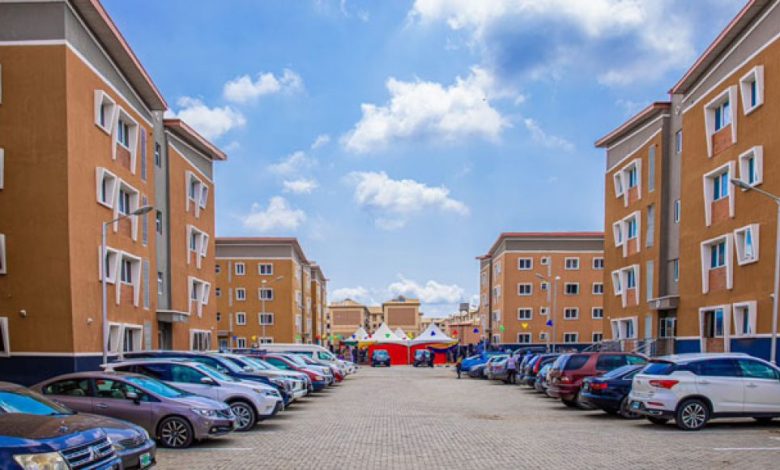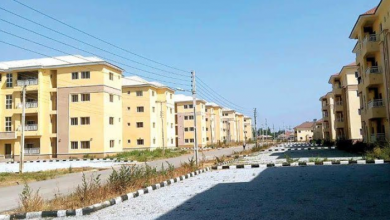‘How absence of land titles impedes real estate growth’ ~ Prestige Real Estate News
‘How absence of land titles impedes real estate growth’


Despite the gains of ease of doing business in the real estate sector, over 60 per cent of Nigeria’s 923,000 square kilometres land areas and property owners are without titles due to the cumbersome process of obtaining Certificate of Occupancy (C-of-O) and other documents.
The Guardian learnt that inefficient land registration and titling procedures have negatively impacted the development timelines and discouraged investment in the sector. For instance, it took some property owners in Lagos about six years before getting their documents.
The real estate sector is inundated by uncertainty of title acquisition and perfection of title, consent, revocation and re-certification issues. Besides, land costs are unduly high and exacerbated by transfer and perfection costs.

The Nigerian constitution vested the responsibility of issuing titles on state governments, as all lands are vested in the governors according to the Land Use Act (LUA) of 1978. Industry stakeholders have over time called for the review of Section 1 of the Act, which allocates enormous power to the governors, many times leading to abuse and uncertainty of title for those who need it.
According to the 2018-2019 Nigeria Living Standards Survey (NLSS) report by the National Bureau of Statistics (NBS), 71.4 per cent of landlords sampled across the 36 states and the Federal Capital Territory (FCT) are without titles. The report published by NBS shows that 13.2 per cent of the country’s property owners have title deeds, while only 8.1 per cent have the C-of-O.
Among critical setbacks observed by stakeholders are rigorous processes, official corruption, long duration and high cost of documentation coupled with the inertia by authorities to distort land policies contributes to increased property values and unaffordability of land for urban poor and increasing formation of informal settlements in cities.
Findings in some states show that individuals are required to pay 10 per cent capital gains, others three per cent or one per cent and in other cases the price is relative to the cost of land. However, only about 48 per cent of the states require valuation to determine value of land and incidental cost to pay for land title registration, while the rest is based on the rule of thumb or whatever the governor decides, which may not be fair to property owners or the person registering the title.
Statistics revealed that between 2018 and 2023, the Federal Government approved 7,985 titles. It approved and issued 1,300 certificates to owners of verified Federal Government land as of October 25, 2018. Speaking recently, the Minister of Works and Housing, Babatunde Fashola, who inaugurated e-C-of-O said the government signed about 6,685 in the eight-year tenure of President Muhammadu Buhari.
Across the states, The Guardian gathered that a substantial number of property owners often abandon the processing mid-way, thus, leaving the government agency to grapple with a huge number of uncompleted applications associated with non-submission of vital information and other documents. This, it was gathered, is not unconnected with the bureaucratic bottlenecks and cost of applications.
With states like Lagos and others introducing e-application for land documentation, the move has yet to bring a far-reaching result as people who provide the e-certificate still constitute bottlenecks in the process.
In Ogun State, the government issued only 4,000 certificates of occupancy to landowners as of 2022, while in Lagos, Akinwunmi Ambode administration signed a total of 5,172 certificates in three years and from May 2019 to May 2022, 727 electronic C-of-O were signed by the Babajide Sanwo-Olu administration, asides those for regularisation.
Also, in Borno, Governor Babagana Zulum issued 775 C-of-O in his first term in office. Over the years, residents’ attitude to the process has been lukewarm as a result of the observed encumbrances in the procedures. Without titles, it is difficult to transact and this leads to inability to convert real estate to capital and high incidents of fraud, which casts a pall of low integrity on real estate and real estate transactions.
Speaking on the development, President, International Real Estate Federation, (FIABCI), Mr. Gladstone Opara, said the hiccups in obtaining titles to properties is a major impediment to real estate development, “it has been proven all over the world that besides boosting real estate, titles help in the issue of identification indigenes of a nation and where they live.
“If you have a proper title, using an online documentation process, it will help in combating crimes. You can’t use a letter of allocation to get a loan and can’t put the property on the list of what you have because some organisations will not accept it rather prefer C-o-O and others. As long as such applications move from table to table and are done manually, the system can’t stop corruption.”
He said the current issues about lack of documentation seem to be man-made, stressing that in advanced nations; the request is captured electronically and with speed delivered in a few days.
“The Lagos State government has not been magnanimous enough to ensure title ownership because they keep increasing the cost, sometimes up to the value at which you bought a property and most times, people are discouraged from doing their documentation”, Opara said.
He said since the problems are known, the solutions are also known but the government needs to actualise solutions like improved online documentation proffered over the years.
Former chairman, Lagos branch, the Nigerian Institution of Estate Surveyors and Valuers (NIESV), Adedotun Bamigbola, said easing access to property titles is one of the basic considerations for ease of doing business and ensuring property title is accessible to individuals or organisations.
“The key thing is that land is a critical asset for any development, unfortunately, the LUA has not fulfilled its potential, although we have used it for about 44 years. The law put the governors in charge of land titles and in the process used it as a political tool in most cases.
“Some of them like Lagos have used it as a developmental tool, but the state has also used it for political purposes. There have been cases of people that have land and the purpose of taking the land from them was not justifiable.
Bamigbola explained that in some states, it takes as long as four years to process land title, pointing out that if you don’t have ownership of land, it is difficult to invest in developing the land either for residential or industrial purposes.
He lamented that access to titles has been limited, the cost and time required to have access, as well as the documentation is discouraging many property owners. Bamigbola said state governments should adopt technology, especially cadastral zoning to ensure mapping is in place, block chain technology to support back end of title ownership for transfer and monitoring of titles.
He emphasised that technology will help to address challenges in the process and allow people to apply online, adding that it will reduce the influence of individuals.
“Government should ensure that the properties are adequately assessed for fairness to both parties. The cost of registration should be minimised. During Governor Babatunde Fashola administration in Lagos, NIESV proposed a one-percent cost away from the 15 per cent then, to register title but the governor did not agree to it, rather he agreed for three per cent.
‘That created an upsurge in numbers of those registering. There is also a need to educate people on the processes and the Governor through the Surveyor General find out lands that are committed under acquisition and determine what the land should be used for and free up the land,” he said.
The Managing Partner, RefinHomes, Kazeem Owolabi, said if title acquisition process is not quick and responsive, it becomes a major deterrent to developments.
Owolabi said: “I don’t think the government understands the urgency to make titles available for real estate. The delay is affecting the speed, growth and ability to deliver homes, as urgency is required from both sides.
“Most times when you are doing development, you borrow money. A lot of homebuyers won’t buy if there are no titles. Delays in getting titles also affect the funding of real estate projects.”
He said the agencies need to automate title processing to remove the bottlenecks and be more responsive in filing, confirmation and setting up channels for complaints and ensuring proper monitoring of the processes.
“If all of us are talking about affordable homes or cheaper accommodations, it starts from obtaining titles. If the cost is high, what the developer will do is to pass the cost to home buyers and that makes housing more expensive,” he added.
An estate surveyor and valuer, Mr. Chudi Ubosi, said successful amendments to the Act would increase and deepen real estate transactions, increase the housing stock and in the long run, reduce the housing deficit.
- The Guardian





